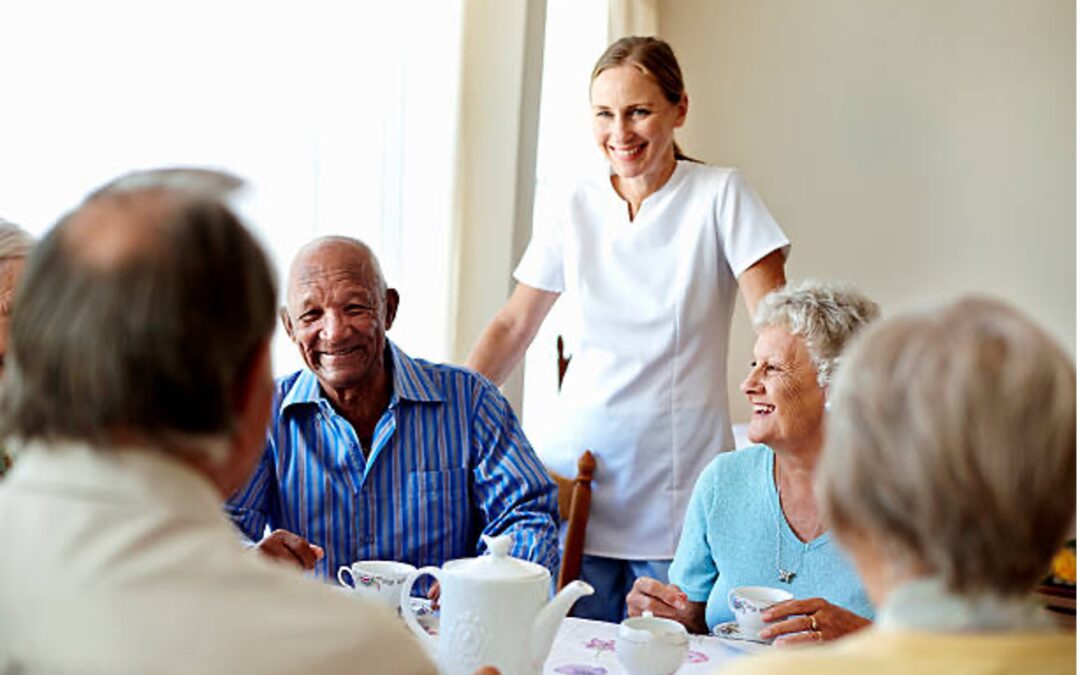
Key Takeaways:
- The importance of social interaction and community activities in senior living.
- Tips for maintaining physical and mental well-being in senior communities.
- Strategies for promoting independent living while ensuring safety and wellness.
The Importance of Social Interaction in Senior Living
Social interaction is vital for seniors as it significantly impacts their mental and emotional well-being. Participating in group activities, hobbies, and social clubs helps seniors avoid feelings of isolation and loneliness. A sense of community can be fostered through well-designed programs and facilities, such as those offered at Westminster.
According to a study by the National Institute on Aging, social isolation can lead to various health problems, including high blood pressure, heart disease, and cognitive decline. Regular social interaction keeps the mind sharp and spirits high by ensuring that seniors feel connected and valued.
Community Activities That Engage and Inspire
Participating in community activities presents a wealth of advantages for elderly individuals, including elevating their feelings of purpose and connection. Pursuits like engaging in arts and crafts, experiencing music therapy, and tending to gardens can prove especially impactful in bolstering mental well-being. Expressing oneself creatively through art can be deeply fulfilling therapeutically and serve as a channel for emotions. Research indicates that music therapy can reduce anxiety and enhance cognitive abilities. Additionally, gardening not only encourages physical movement but also fosters a sense of achievement and tranquility.
Research from AARP highlights how participating in these activities can improve physical health, mental sharpness, and emotional stability. Elderly individuals who regularly participate in community activities frequently express greater levels of happiness and overall satisfaction with life.
Maintaining Physical Health: Exercise and Nutrition
Regular physical activity enables seniors to maintain mobility, balance, and overall health. Simple activities like walking, yoga, or water aerobics can be incredibly beneficial. Walking is a low-impact exercise that keeps the cardiovascular system strong and muscles toned. Yoga improves flexibility, balance, and mental tranquility. Water aerobics is an excellent way to exercise without putting undue stress on the joints. Along with exercise, maintaining a well-balanced diet rich in fruits, vegetables, lean proteins, and whole grains is essential.
Essential nutrients such as calcium and vitamin D play a crucial role in maintaining bone health, while antioxidants present in fruits and vegetables can help prevent chronic illnesses. Hydration is also key, alongside reducing intake of sugars and processed foods. Adopting a balanced diet not only nourishes the body but also boosts energy levels, thus enhancing the overall well-being of seniors.
Prioritizing Mental Health and Cognitive Fitness
In senior living communities, recognizing the significance of mental well-being alongside physical health is crucial. Promoting activities that stimulate the mind, such as solving puzzles, playing board games, and reading, can aid in preserving cognitive function. Involvement in mentally stimulating tasks keeps neurons active and fosters neuroplasticity, the brain’s capacity to restructure itself through establishing new neural pathways.
Furthermore, providing access to mental health resources, such as counseling and therapy sessions, ensures that seniors have the support they need to address any emotional or psychological concerns. Listening sessions, where seniors can express their worries and anxieties, are also vital. Providing a supportive environment where seniors can express their feelings without judgment contributes significantly to their overall mental well-being.
Promoting Independent Living Safely
Many seniors value their independence, and it’s important to respect and promote this while ensuring their safety. Utilizing assistive devices and home modifications, such as grab bars and non-slip mats, helps seniors navigate their living spaces safely. These modifications reduce the risk of falls, which are a common concern among older adults. Additionally, implementing emergency response systems can provide peace of mind for both seniors and their families. Devices that allow seniors to call for help instantly in case of an emergency can be lifesaving. Education about fall prevention and safety tips can also empower seniors to take control of their living environment. By balancing independence with safety, seniors can enjoy a more fulfilling and worry-free life.
Engaging Families in Senior Living Communities
Family involvement is key to the well-being of seniors. Regular visits and communication with family members can bolster a sense of love and support. When family members are actively involved, seniors feel more connected, loved, and valued. This emotional support is crucial for mental health. Communities should facilitate family engagement through events like family days, virtual visits, and newsletters to keep everyone connected and informed. Activities that involve multiple generations, such as family picnics or interactive workshops, can strengthen family bonds and create cherished memories. By fostering a family-inclusive environment, senior living communities can enhance the emotional and social well-being of their residents.
Lifelong Learning Opportunities
Learning shouldn’t stop at any age. Many senior communities offer educational programs, workshops, and classes that allow residents to explore new hobbies or further develop existing interests. This not only keeps their minds active but also provides opportunities for social interaction and personal growth. Lifelong learning can include a variety of topics—ranging from technology classes to history lectures and cooking lessons to language courses. Engaging in continuous learning helps seniors stay mentally agile and can spark new passions or revitalize old ones. It also provides a sense of accomplishment and purpose, which is beneficial for emotional health.
Fostering a Sense of Community and Belonging
Creating a strong sense of community is fundamental in senior living. Organizing group outings, communal meals, and shared celebrations can lead to lasting relationships and a supportive environment. Group outings to local attractions or simple nature walks can be refreshing and provide a change of scenery. Communal meals offer daily opportunities for conversation and camaraderie. Celebrations of birthdays, holidays, and cultural events help residents feel connected and valued. It’s all about making sure seniors feel they belong to a larger, nurturing family. A compassionate community can significantly enhance the quality of life by ensuring that no senior feels lonely or left out.





